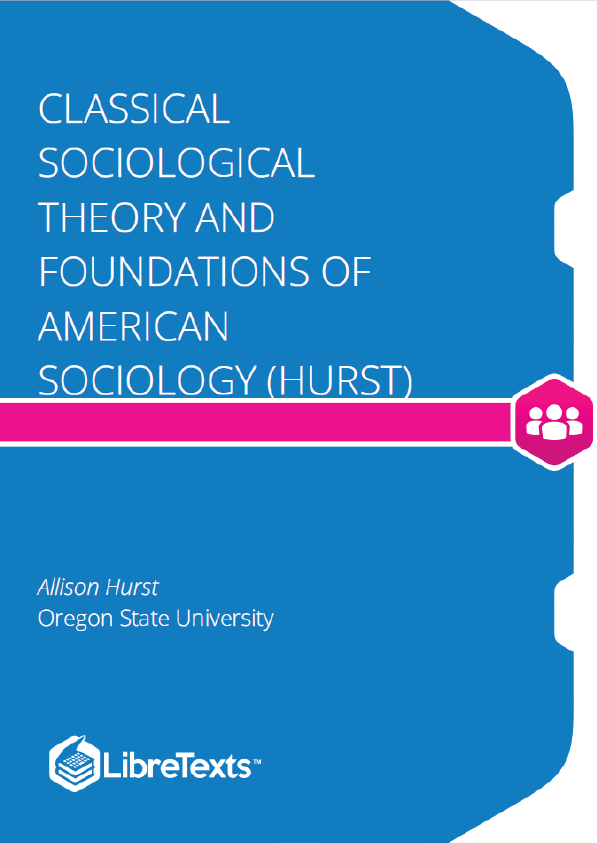There are a few major themes that come up over and over again during the course of classical sociological theory’s development. All three classical theorists were writing at a time when sociology was a new and emerging discipline. This new discipline was called forth by momentous social changes taking place in European (and American) society during this time period. These changes were related to the rise of capitalism, industrialization, and new political representation for the majority of people (or, at least, a desire for such by many). Calls for socialism emerged as a response to recognition of new social divisions. Each of the three theorists you will read here weighed in on these historical changes, theorizing the contours and dynamics of this new “modern” society.
Aims and Goals
There are many excellent introductory readers to sociological theory out there. Why another one? The primary reason is that this is an Open Access textbook, free to you, the student, thanks to Oregon State University. We know that textbooks can be very expensive, and we think it is particularly problematic to charge students for access to work that has been published, in its original form, several decades ago. If you wanted, you could find all of the work included here in your local library, although you would have to put together many different books and articles. That is the second reason for this textbook – important passages have been collected for you, assembled here in one handy volume.
There are a few features unique to this particular selection of texts. First, when not originally published in English, they have been freshly translated for the 21 century student. Some license has been taken in making these translations, as described in more detail below. All work, even that originally published in English, has been represented for contemporary eyes. For example. although some may find this an editorial overreach, masculine pronouns have been changed whenever doing so does not detract from the original intent of the authors. Also, many passages have been shortened and ideas presented more simply than may be the case in the original. It is best to read the selections as very loose translations. More advanced students are welcome to read other more exact translations (or the original), and suggestions for finding these are included at the start of each passage.
Another unique feature of this volume is the inclusion of a section on early American sociological theory. It is often thought that American sociological theory did not really begin until well into the twentieth century. Although it is true that what we consider “classical” sociological theory came almost exclusively from Europe, there were quite a few American sociologists struggling with similar issues as those Europeans. More importantly, they read those Europeans. By including these early American sociologists here, we hope to provide you a better understanding of the context in which sociological theory was first advanced. It is hoped that a better understanding of the “greats” of classical sociological theory can be achieved by reading these Americans alongside Karl Marx, Emile Durkheim, and Max Weber.











